2021 New Directions in Cuban Studies – Meet the Panelists
Panelists
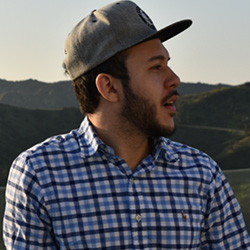
Andy Alfonso
Spanish and Portuguese, Princeton University
My research interests lie at the intersection of historiography, cultural studies, and spatial humanities, with a special focus on infrastructures of racialization and the memories they produce. My dissertation deals with practices of archivism and memorialization in contemporary Cuba, as well as with the shadow lives of the Revolution, that is, journeys and discourses that exceed the limits of “official” narratives while challenging the linear, organic teleology of history and the nation.
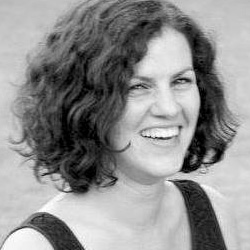
Elise Arnold-Levene
Literature and Language, Mercy College
Elise Arnold-Levene is an Assistant Professor of Spanish at Mercy College in Dobbs Ferry, New York. She holds an M.A. and Ph.D. in Latin American and Iberian Cultures from Columbia University and a B.A. in Hispanic Studies from McGill University. She specializes in 19th- and 20th-century Latin American and Caribbean literature and cultural studies with a focus on Cuba and the Cuban diaspora. Her interests include Afro-Cuban studies, visual and material culture, intellectual history, and life writing.
Elise has studied at the University of Havana, and she has conducted research at archives across Cuba and the United States, including the University of Miami Cuban Heritage Collection where she was a 2015-2016 Research Fellow. At Mercy College, she designed and teaches the course “From Self to Selfie,” which looks at self writing, including autobiography, memoir, and testimonio, from across Latin America, and she explores autobiographical writing in her essay “Echoes of Havana,” published by The Threepenny Review.
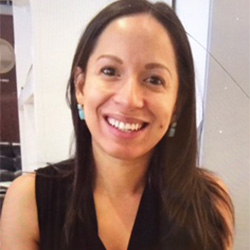
Ana Baez
English, Foreign Languages & Literatures, Chicago State University
Ana Baez is an Assistant Professor of Spanish at Chicago State University. Her teaching and research interests include twentieth and twenty-first Hispanic Caribbean, Latin American, and Latinx aesthetics. Her book manuscript, Aesthetic Interruptions: Debt and Inheritance in Hispanic Caribbean Literary and Visual Art, traces contemporary aesthetic challenges to normative conceptions of community in post-1989 aesthetics from the region. Ana is currently working on two related projects, which delve into the ethics of writing in Hispanic Caribbean aesthetic production, and Latinx literature.
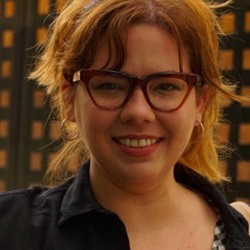
Grethel Domenech
Departamento de Historia, Universidad Iberoamericana
Candidata a Dra. en Historia por la Universidad Iberoamericana, Ciudad de México. Maestra en Historia por la misma institución (2018). Investiga temas relacionados con la historia e historia de los intelectuales en América Latina durante la segunda mitad del siglo XX. Autora del libro Rehabilitación de la memoria histórica: Lunes de Revolución en el campo intelectual cubano (1959-1961), Editorial Abril, 2017. Artículos suyos se han publicado en revistas y medios de Cuba, México, Colombia y Brasil.
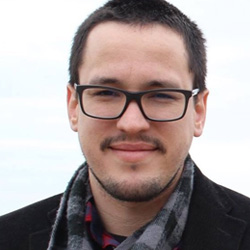
Pedro Noel Doreste
Cinema and Media Studies, University of Chicago
Pedro Noel Doreste Rodríguez is doctoral candidate in Cinema and Media Studies at the University of Chicago. His research surveys transnational and minor cinemas of the Caribbean, with a particular focus on the islands of the Hispanic Caribbean. His work is interested in media archaeologies of underdevelopment, film and modernity in the circum-Caribbean, archival studies, and the intersections of cultural production and/under coloniality in its many configurations. He loves his dogs, Congrí and Ossie.
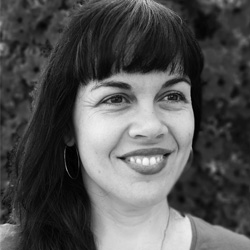
Cary Aileen García Yero
History / Weatherhead Center for International Affairs, University of Toronto / Harvard University
Cary Aileen García Yero is Postdoctoral Fellow in the Department of History at the University of Toronto. She is also Affiliate of the Research Cluster on Comparative Inequality and Inclusion in the Weatherhead Center for International Affairs at Harvard University. Her work has been supported by the Social Sciences and Humanities Research Council of Canada, the Afro-Latin American Research Institute and the David Rockefeller Center at Harvard University, among others. She received a Ph.D. degree in History from Harvard University in 2020. Her research interests include Afro-Latin American art, race relations in the Americas, Cuban history, Cold War history, and cultural theory. Her book project, Colors of Dissent: Race, Nation and the Arts in Cuba, 1938-1963 studies the power and limitations of the arts to oppose racism in Latin American societies shaped by ideologies of racial harmony. She has been Managing Editor of the journal Cuban Studies, published by the University of Pittsburgh Press. She has taught history courses at Simon Fraser University and the University of the Fraser Valley. Her work appears in the journals Latin American Research Review (forthcoming), Studies in Latin America Popular Culture, and Cuban Studies.
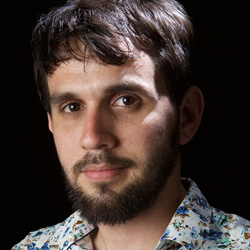
Lázaro González González
Film & Media, University of California, Berkeley
Lázaro González González is P.h.D candidate in Film & Media and an award-winning filmmaker. His areas of interest include queer cinema, non-fiction storytelling, and Latin American film and media production. His movies Masks (2014) and Villa Rosa (2016) has been screened in several film festivals around and distinguished with grants such as Sparring Partners Fund, the Norwegian Fund for Cuban Cinema, and AMI’s Closing Distances Award. Villa Rosa also won the Best Documentary Award in Latino and Iberian Film Festival at Yale, and the Audience Award at Barcelona International Gay and Lesbian Film Festival, among other awards. He also holds a Master of Arts in Literatures, Cultures, and Languages from the University of Connecticut; and has been an alumnus of the International School of Cinema, in Cuba, and the Sundance Documentary Lab. His current film project, entitled Sexile, seeks to build an archive of Cuban queer memory in the diaspora.
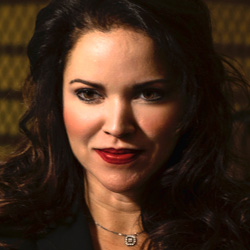
Lillian Guerra
History, University of Florida
Dr. Lillian Guerra is Professor of the History of Cuba and the Caribbean in the Department of History at UF. She is the author of five books of history, among them “The Myth of José Martí” (UNC, 2005); “Visions of Power in Cuba: Revolution, Redemption and Resistance, 1959-1971” (UNC Press, 2012); Heroes, “Martyrs and Political Messiahs in Revolutionary Cuba, 1946-1958” (Yale University Press, 2018); and most recently “Patriots and Traitors in Revolutionary Cuba, 1961-1981” forthcoming at the University of Pittsburgh Press. She has won the Guggenheim Fellowship, the ACLS Fellowship and most recently, the NEH for 2020-21. “Visions of Power” won the 2014 Bryce Wood Book Award from LASA, its most prestigious prize across all fields and disciplines of Latin American Studies.
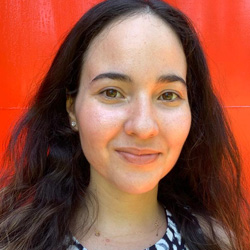
Lidia Hernández Tapia
Latin American, Iberian and Latino Cultures (LAILAC), The Graduate Center, CUNY
Lidia Hernández-Tapia is a PhD student in Latin American, Iberian and Latino Cultures at The Graduate Center, CUNY, and a Digital Fellow at the Center for Latin American, Caribbean and Latino Studies, CLACLS. She holds a BA in Journalism from the University of Havana and a Master’s degree from the Craig Newmark Graduate School of Journalism at CUNY. Her journalistic work prior to entering academia was published in Cuba, the United States and Germany. Her research interests focus on 20th and 21st Century Caribbean literature, photography and nation building.
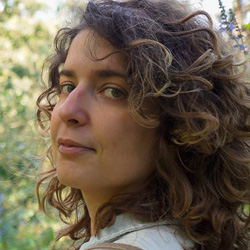
Anaeli Ibarra Caceres
Doctorado Humanidades, Universidad Autónoma Metropolitana
Anaeli Ibarra Caceres (La Habana, 1986): Doctorante en Humanidades en UAM-Xoc, México. Programadora de contenido para Laboratorio de Medios y Tecnologías de El Rule, Secretaria de Cultura de la CDMX, México. Co-cordinadora del Diplomado en Producción Audiovisual con Perspectiva de género del Laboratorio de Tecnologías de El Rule, Secretaría de Cultura. Co-coordinación del Seminario Permanente De/Generado: cine, género y disidencias sexuales. Profesora de Asignatura Universidad Iberoamericana. Profesora de Asignatura en la Universidad Autónoma Ciudad México. Profesora de asignatura en la Universidad de La Habana. Egresada de Maestría Estudios Latinoamericanos en la UNAM. Coordinación y curaduría de la muestra Ciclo de cine y video en Cuba: Insularidades políticas y relatos de lo posible, en e l MUAC, CDMX, México. Editora Sello Editorial ArteCubano del Consejo Nacional delas Artes Plásticas de Cuba. Crítica de cine y conductora en la Sección de Crítica del Programa televisivo Nuevos Aires, televisión cubana. Premio de Crítica Dr. Guy Pérez Cisneros, otorgado por el Consejo Nacional de las Artes Plásticas de Cuba. Mención Especial Premio de Crítica Dr. Guy Pérez Cisneros. Egresada de Licenciatura en Historia del Arte de la Facultad de Artes y Letras de la Universidad de La Habana, Cuba. Tiene artículos en libros y revistas arbitradas. Ha participado en coloquios y congresos internacionales.
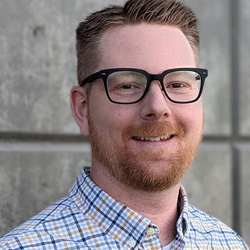
Chris Jensen
Political Science, University of Utah
Chris Jensen is a PhD candidate in political science at the University of Utah with a sub-disciplinary background in comparative politics, political theory, and public administration. He holds a master’s degree in Public Administration within an emphasis in Latin American Studies from the University of Utah as well as a bachelor’s degree in International Studies with an emphasis in development and regional concentration in Latin America from California State University, Long Beach. His most recent awards have been as an Administrative Theory and Praxis Graduate Fellow (2019-2020) and a Tinker Foundation Dissertation Research Grantee (2020-2021).
While most major comparative politics research on authoritarianism is focused on elite actors and top-down processes, Jensen’s overall scholarship seeks to complement the extant literature by providing a bottom-up approach to political change within authoritarian settings. With significant methodological background in qualitative and interpretive methods, Jensen’s research seeks to elucidate under-appreciated political activities in Cuba and problematize current understandings of political efficacy, citizenship, and local agency within its authoritarian context. Since 2015, he has been conducting political ethnographical work in Cuba with a number of autonomous community-based organizations which work on a variety of social justice issues on the island. Given the constraints of the global pandemic, Jensen’s current dissertation research has shifted to study critical online discourses among independent leftist bloggers in Cuba.
Prior to academia, Jensen worked in the non-profit sector, collaborating extensively with local communities in Chile, Peru, Ecuador and Colombia.
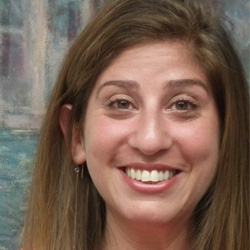
Michal Kofman
Sociology, University of Louisville
Dr Michal Kofman is a Visiting Assistant Professor in the Department of Sociology at the University of Louisville, Kentucky. Her research focuses on the connection between law, ideology, identity, and nation building, and she has published articles on the role of (formal and informal) legal systems in the construction of collective identities in Cuba and pre-state Israel.
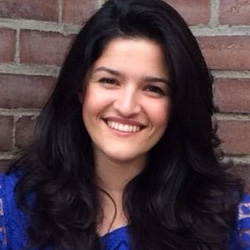
Lauren Krebs
Lauren Krebs is a graduate student in Latin American and Modern Jewish History at the University of Florida. She currently works as a Latin American & Caribbean Collection Digital Assistant at University of Florida. She was the managing editor of Cuban Studies, the preeminent journal for scholarly work on Cuba.
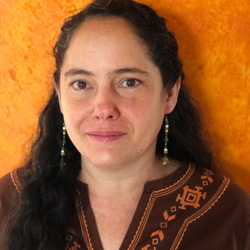
Hilda Landrove
Mesoamerican Studies. Anthropology, UNAM
Hilda Landrove es cubana, reside en México desde hace 12 años. Es Licenciada en Educación Musical, Maestra en Estudios Mesoamericanos y se encuentra concluyendo actualmente el Doctorado en Estudios Mesoamericanos por la UNAM. Se ha dedicado al emprendimiento social y la educación en el campo del arte y la cultura y más recientemente a la investigación antropológica e histórica y el análisis de la realidad cubana. Su campo de estudio académico es la antropología política, en particular de los pueblos indígenas. En la actualidad participa como miembro del proyecto Laboratorios de Historia Indígena, para la co-producción del conocimiento sobre historias locales y escribe para diversos medios.
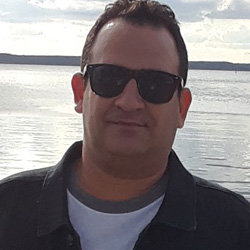
Jorge Luis Lanza Caride
Centro Provincial de Cine en Cienfuegos, ICAIC
Egresó de la licenciatura en Estudios Socioculturales en el curso 2004/2005 y partir de esa fecha inició su labor profesional como profesor del Departamento de Estudios Socioculturales de la Facultad de Humanidades de la Universidad de Cienfuegos.
Ha impartido cursos de postgrado sobre cine cubano a estudiantes de la Universidad de Tacoma, EE.UU y de otras universidades. En dicha institución impartió las siguientes asignaturas: Cine cubano, Pensamiento cultural latinoamericano, Estética, y Economía Política. Entre septiembre del 2008 y septiembre del 2016 se desempeñó como especialista en Promoción de la actividad cinematográfica en el Centro Provincial de Cine de Cienfuegos, institución adscrita al ICAIC y el Ministerio de Cultura de Cuba. Desde el 2013 hasta la actualidad ejerce la crítica cinematográfica en publicaciones de la Iglesia Católica en Cuba, ha sido jurado de eventos cinematográficos como la Muestra Joven ICAIC y el Festival internacional de Cine Latinoamericano donde fue jurado por SIGNIS (Asociación católica internacional para las Comunicaciones), además de representar a La Asociación Cubana de la Prensa Cinematográfica en otros eventos de cine. Ha colaborado con las publicaciones de críticas cinematográficas a través de la fundación Cadal y ha participado en eventos internacionales organizadas por LASA, asociación de la cual es miembro. Su próxima publicación está en proceso con CADAL y será titulado “Desde la Nueva Ola checoslovaca hasta la Revolución de Terciopelo, una mirada desde el contexto cubano”.
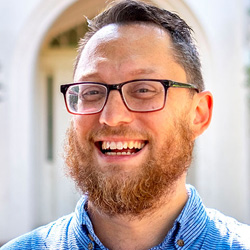
Mike Levine
Music, University of North Carolina at Chapel Hill
Mike Levine is a doctoral candidate in musicology at the University of North Carolina at Chapel Hill. His dissertation utilizes three years of ethnographies conducted in Havana, Miami and digital platforms to investigate “el paquete semanal” (Cuba’s offline internet) and its relationship to media piracy and Black Cuban reggaetón artists. He has written for online sound studies publication Sounding Out!, independent arts and literature magazine Hypermedia, the academic journal Cuban Studies, and will publish an article next year in musicology journal Twentieth Century Music. When he is not working at a coffeehouse or teaching classes on Zoom, he plays Ableton Live and bass guitar in the Brooklyn-based electro-dance project, Ghost Guns.
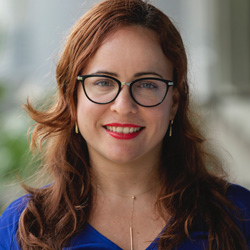
Lilianne Lugo Herrera
Department of Modern Languages and Literatures, University of Miami
Lilianne Lugo Herrera received her Ph.D. in Literary, Cultural, and Linguistic Studies in 2020. She is a Lecturer at the Modern Languages and Literatures Department, at the University of Miami. In support of her dissertation, Lugo Herrera received the Goizueta Dissertation Fellowship from the Cuban Heritage Collection, and the Center for the Humanities Dissertation Fellowship. Recent awards also include an MLA Travel Grant, the ASTR Thomas Marshall Award, the NEH Summer Institute on Digital Technologies in Theatre and Performance Studies, and the Feministas Unidas Graduate Essay Award. Her articles have appeared in the edited volumes The Palgrave Handbook of Theatre and Race (Palgrave Macmillan, 2021) and Reading Cuba (Aduana Vieja, 2018), and in the journals Valenciana, Gestos, Anuario de Estudios Cervantinos, Conjunto, and Tablas. She is currently working on her book project “Mediated Archipelagoes: Theater, Women, and Media,” where she analyzes the works of contemporary women playwrights, looking at how media is a fundamental tool to critique social injustice, gender inequality, and racism, among other topics.

Natasha Marcus
Natasha Marcus is an educator and independent scholar. She holds a B.A. in International Studies from Emory University and a Certificate from Harvard University’s Afro-Latin American Research Institute. In 2018 she presented a conference paper titled “Afrocubana Femininity in the Modern Pictorial Vocabularies of Amelia Peláez and Mario Carreño” at Cuba Studies Graduate Symposium at Harvard University.
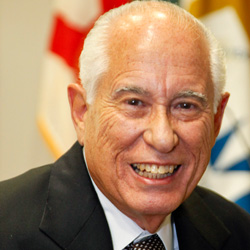
Carmelo Mesa-Lago
Distinguished Service Professor Emeritus of Economics and Latin American Studies, University of Pittsburgh
Carmelo Mesa-Lago is Distinguished Service Professor Emeritus of Economics and Latin American Studies University of Pittsburgh, has been a visiting professor/researcher in 8 countries and lecturer in 39, and author of 95 books/pamphlets and 318 articles/chapters published in 8 languages in 34 countries, about half of them on Cuba’s economy and social policy. His most recent book is: Voices of Change in Cuba from the Expanding Non-State Sector (U. of Pittsburgh Press, 2018). He was the founder of Cuban Studies in 1971, its editor until 1986, and serves in the current board. He was President of LASA, is a member of the National Academy of Social Insurance and the Latin American Academy of Science; has received: ILO International Prize on Decent Work (shared with Nelson Mandela), Alexander von Humboldt Stiftung Senior Prize, two Senior Fulbrights, LASA Prize on Excellency on the Study of Cuba; selected among the 50 most influential Iberoamerican intellectuals; finalist in Spain’s Prince of Asturias Prize on Social Sciences 2014 and 2015.
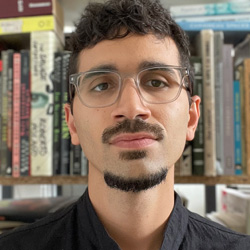
Yoán Moreno
Modern Languages and Literatures, University of Miami
Yoán Moreno is a PhD student in Literary, Cultural, and Linguistic Studies at University of Miami. He is a McKnight Fellow (2021-2026) and a UM Dean’s Fellow (2021-2023). He has participated in the MELUS and ACLA conferences, and has published texts in popular media. His work is primarily focused on generating new, useful/usable concepts (mainly rehearsed in Caribbean texts) for the purposes of increasing critical approaches, and sharpening his pedagogy of Writing and Rhetoric. Prior to joining the program, Yoán taught Writing and Rhetorical Arts at Loyola Marymount University in Los Angeles, in addition to working as an independent writer, translator, musician, and Spanish instructor.
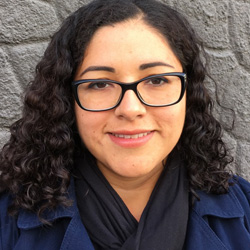
Nadia Nava
Political and Economic Studies/North American Studies, University of Helsinki/University of Turku
Nadia Nava works as a researcher for the CUBAFLUX project at the John Morton Center for North American Studies (University of Turku, Finland). The project delves into visual displays and everyday experiences of urban transformation in Havana over the last few years. Within the project, she has been broadly interested in the online branding of Havana and the cultures of the internet in Cuba. Her ongoing research focuses on the rise of social media influencers across different platforms and how they participate in societal discussions. She holds a Master’s Degree in History of the Americas from Universidad Michoacana, Mexico, and is a Ph.D. Candidate in Political History at the University of Helsinki (-2022). Her doctoral work addresses imageries of Mexico in Finland during the 20th Century.
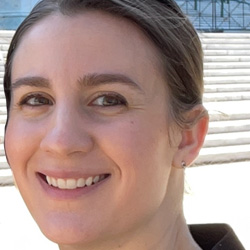
Elizabeth Obregon
Anthropology, University of Illinois at Chicago
Elizabeth Obregón is a PhD Candidate in Anthropology at the University of Illinois at Chicago and an IUPLR/Mellon fellow. Her research explores processes of racialization both in Cuba and the Cuban American diaspora and considers the ways that ideas of biology and genetic ancestry knowledge shape racial discourses. Her work has been published in Ethnic and Racial Studies and SAPIENS.
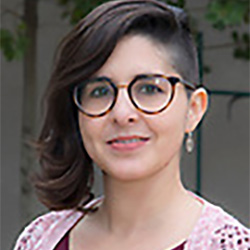
Amalia Perez Martin
Sociology Department, University of California, Merced
Amalia Pérez Martín is a jurist and a Ph.D. candidate in the Sociology Department at the University of California, Merced. She graduated from law school at the University of Havana in 2009, has completed three master’s degrees in political science and sociology, and has been a professor in universities of Cuba, Ecuador, and the United States. Her book “La iurisprudentia en el derecho actual. ¿Todos los caminos conducen a Roma?” was published in Mexico in 2010, and other scholarly works of her authorship have appeared in edited volumes such as The Oxford Handbook of Latin American Sociology and academic journals such as Cuban Studies and NACLA. Amalia’s research interests revolve around the intersections of law, social movements, and revolutions in Latin America and Cuba from a sociohistorical perspective. Her current projects address, more specifically, anti-austerity protests and global resistance to neoliberalism, legal mobilization, legal repression, political identities, intersectionality and social inequality, and diaspora mobilization.
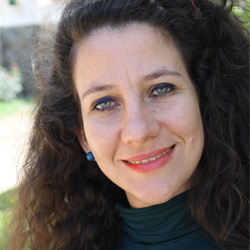
Mónica R. Ravelo García
Facultades de Humanidades y Ciencias Sociales, Universidad de Valparaíso, Chile
Licenciada en Historia del Arte por la Universidad de La Habana y Dra (c) en Estudios Interdisciplinarios sobre Pensamiento, Cultura y Sociedad en la Universidad de Valparaíso, Chile. Ha sido becaria FIB-UV y ANID en Chile. Se ha desarrollado como crítica de arte, investigadora cultural, artista de la robótica y narradora. Este último oficio le ha propiciado diferentes lauros en Cuba: Premio Pinos Nuevos 2011 de narrativa, Premio Razón de Ser 2010, Premio Francisco (Paco) Mir Mulet (2010), Beca El Caballo de Coral (2010) y la Mención en Pinos Nuevos 2010. De ahí nace su libro premiado en Pinos Nuevos 2011 “Chica de Portada”, editado por Letras Cubanas (2011) y en proceso de reedición por Caja China. Mientras, espera para 2021 la publicación de su libro “Ultrafemme” por Casa Vacía. Algunos cuentos suyos también aparecen en revistas y antologías. Como investigadora, se ha enfocado en el arte y la literatura críticos, el arte digital de resistencia, la herencia colonialista y de la cultura de la Plantación en el Caribe y las transformaciones culturales asociadas a las tecnologías. Ha extendido su formación mediante pasantías de investigación en Princeton University (Estados Unidos) y Universidad de La República (Uruguay). Asimismo, ha realizado cursos de especialización y ha expuestos sus avances investigativos en instituciones de América y Europa. Sus artículos sobre arte aparecen en revistas de Cuba, Argentina, Colombia y España.
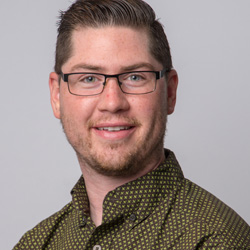
Nicholas Sheets
Department of Modern Languages and Literatures, University of Miami
Nick Sheets is a current PhD Candidate (ABD) whose research intersects childhood, literature, and theater studies in modern and contemporary Cuba and Mexico. His dissertation, “Claiming Cultural Capital for Children in Revolutionary Cuba and Mexico through Print and Performance,” centers on Cuban and Mexican writers’ symbolic use of children and childhood in theater for young audiences, novels, and serials, and childhood’s evolving ties with nation building and modernity from the late nineteenth century to contemporary manifestations. He received his MA in Spanish Studies from the University of Kansas and a BA in Theater Arts Studies and a BA in Spanish Studies from Brigham Young University. He has presented papers at the Latin American Studies Association, and at the American Society for Theater Research, among others. He is grateful to the Cuban Heritage Collection at the University of Miami Libraries, and the Cuba Studies Program of the David Rockefeller Center for Latin American Studies at Harvard University for the opportunity to collaborate in this conference.
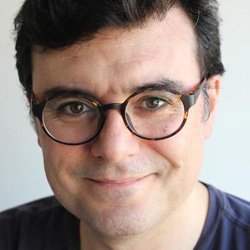
Breixo Viejo
Film Studies, Barnard College, Columbia University
Breixo Viejo is Visiting Assistant Professor in the Film Studies Program at Barnard College, New York, and Senior Research Associate in the School of European Languages, Culture and Society at University College, London. His main research focuses on the history of experimental and independent film, diasporic cinemas, and alternative modes of film production in Europe and the Americas. He holds an MA degree in Media Studies at the New School for Social Research, New York, and a PhD in Film History (Cum Laude) at the Universidad Autónoma de Madrid. He has been a visiting scholar at University of Southern California in Los Angeles, Freie Universität zu Berlin, Columbia University in New York, and Casa Buñuel in Mexico City. He has received awards from the DAAD, the UK Arts Council, and the Leverhulme Trust. Viejo is the author of the books Música moderna para un nuevo cine: Eisler, Adorno y el Film Music Project (Madrid: Akal, 2008), an in-depth analysis of the intersection of critical theory and film, and Film Books (New Castle: Oak Knoll Press, 2016), a visual history of cinema literature from 1895 to present day. He has co-edited with Jo Evans Luis Buñuel: Correspondencia escogida (Madrid: Cátedra, 2018), which was awarded Best Book of the Year by the Spanish Academy of Motion Pictures, and translated as Luis Buñuel: A Life in Letters (London and New York: Bloomsbury, 2019).
Keynote Speaker
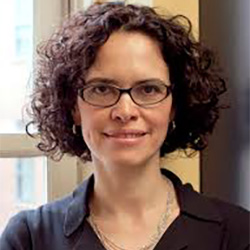
Ada Ferrer
Julius Silver Professor of History and Latin American and Caribbean History, New York University
Ada Ferrer is the Julius Silver Professor of History and Latin American and Caribbean Studies at New York University, where she has taught since 1995. Her most recent book is Cuba: An American History (Scribner, 2021), a sweeping history of more than five hundred years of Cuban history, written in rousing and accessible prose and based on more than thirty years of travel to and research on the island. Ferrer was born in Cuba, left when was ten months old, and grew up in a Cuban community in New Jersey. She traveled to the island for the first time in 1990, to connect with her birthplace and conduct historical research in its archives and libraries. She has made many subsequent trips including with her father for his first trip back to the island since he first left in 1962. On a very personal level, she grasps how insufficient are the many slogans and convictions about Cuba and that influenced her turn to history and desire always to place people first in the way history is told.
Discussants & Moderators
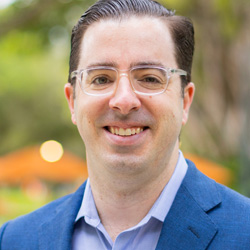
Michael J. Bustamante
History, University of Miami
Michael J. Bustamante, Ph.D. is Associate Professor of History and Emilio Bacardí Moreau Chair in Cuban and Cuban-American Studies at the University of Miami. He is the author of Cuban Memory Wars: Retrospective Politics in Revolution and Exile (UNC, 2021) and co-editor of The Revolution from Within: Cuba, 1959-1980. His scholarship has also appeared in Journal of American Ethnic History, Cuban Studies, Latino Studies, and Journal of Latin American Cultural Studies, among other publications. He serves on the editorial board of Cuban Studies.
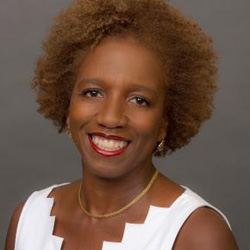
Odette Casamayor-Cisneros
Hispanic and Portuguese Studies, University of Pennsylvania
Odette Casamayor-Cisneros is Associate Professor of Latin American and Caribbean Cultures at the University of Connecticut-Storrs. She received her Ph.D. in Art and Literature from the École des Hautes Études en Sciences Sociales (EHESS) in Paris. Her book Utopia, distopía e ingravidez: reconfiguraciones cosmológicas en la narrativa post-soviética cubana (Utopia, Dystopia and Ethical Weightlessness: Cosmological Reconfigurations in post-Soviet Cuban Fiction), published by Iberoamericana-Vervuert in 2013, examines, through the lens of literary production, the existential void experienced by Cubans after the collapse of the Socialist Bloc in the 1990s.
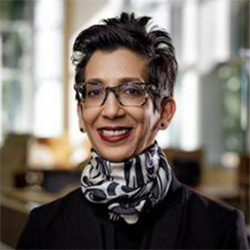
Elizabeth Cerejido
Esperanza Bravo de Varona Chair of the Cuban Heritage Collection
Dr. Elizabeth Cerejido’s professional and academic work has focused on Cuba and the Cuban diaspora. Her scholarly interest in these communities has been implicit in her work as a museum curator, educator, scholar and administrator. In all these roles, the lens of visual arts has been critical to her exploration of Cuban and Cuban diasporic cultural production in the post-revolutionary period. Elizabeth’s curatorial work entailed creation of exhibits and public programming for the Patricia and Phillip Art Museum at Florida International University, and later at the Museum of Fine Arts in Houston, where she served as Assistant Curator of Latin American and Latino Art.
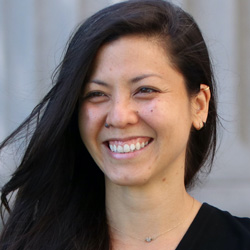
Paloma Duong
Comparative Media Studies and Writing, MIT
Paloma Duong is Assistant Professor of Latin American and Media Studies at MIT. At the intersection of cultural studies, media theory, and critical theory, Paloma researches and teaches modern and contemporary Latin American culture. She works with social texts and emergent media cultures that speak to the exercise of cultural agencies and the formation of political subjectivity. Her forthcoming book Portable Postsocialisms: Cuban Mediascapes after the End of History examines Cuba’s changing mediascape and how it informs the global postsocialist condition. Her articles have been published in the Journal of Latin American Cultural Studies, Art Margins, and Cuban Counterpoints: Public Scholarship about a Changing Cuba.
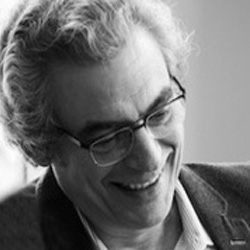
Alejandro de la Fuente
Cuba Studies Program of the David Rockefeller Center for Latin American Studies at Harvard University
Alejandro de la Fuente is the Robert Woods Bliss Professor of Latin American History and Economics, Professor of African and African American Studies and of History, Interim Chair of the Department of African and African American Studies and the Director of the Afro-Latin American Research Institute at the Hutchins Center for African and African American Research at Harvard University. Alejandro de la Fuente is a historian of Latin America and the Caribbean who specializes in the study of comparative slavery and race relations, Professor de la Fuente’s works on race, slavery, law, art, and Atlantic history have been published in Spanish, English, Portuguese, Italian, German, and French. He is the author of Becoming Free, Becoming Black: Race, Freedom, and Law in Cuba, Virginia, and Louisiana (Cambridge University Press, 2020, coauthored with Ariela J. Gross), Havana and the Atlantic in the Sixteenth Century (University of North Carolina Press, 2008), and of A Nation for All: Race, Inequality, and Politics in Twentieth-Century Cuba (University of North Carolina Press, 2001), published in Spanish as Una nación para todos: raza, desigualdad y política en Cuba, 1900-2000 (Madrid: Editorial Colibrí, 2001), winner of the Southern Historical Association’s 2003 prize for “best book in Latin American history.”
Ernesto Fundora
Modern Languages and Literatures, University of Miami
Ernesto Fundora Earned a PhD from the University of Miami in 2018. His dissertation is titled “The Uses of the Stage: Canon Formation Processes in Cuban Theater.” He is currently a lecturer in the Modern Languages and Literature department and edited a collection “Cuba Queer”: 27 textos para el teatro” published by Editorial Hypermedia in 2017.
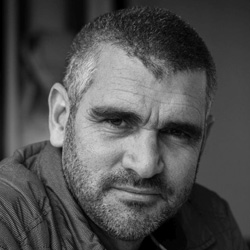
Julio Cesar Guanche Zaldivar
Independent Scholar
(Havana, 1974). Law degree from the University of Havana (1997). Master in Public Law from the University of Valencia (2005). Doctor in Social Sciences, with a mention in History from FLACSO-Ecuador (2017). He has taught as an adjunct professor at the University of Havana. He has directed several national publications and editorials. He is a member of the Editorial Board of magazines, such as Temas, Cuban Studies, Sin Permiso, and OSAL. He is a member of the Constitutional and Political Theory Seminar in Latin America (SELA), of Yale University; member of the American Society for Legal History; member of the Political and Historical Sociology Research Group (FLACSO-Ecuador); member of the Cuba section of LASA and of the UNEAC (Cuba). He has been visiting scholar or visiting professor at Northwestern University, Harvard University, and Max Planck Institute for European Legal History.
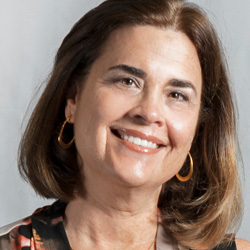
Sallie Hughes
Journalism and Media Management, School of Communication, University of Miami
Sallie Hughes is Professor in the Department of Journalism and Media Management and Associate Dean for Global Initiatives at the School of Communication. She frequently teaches in the Program in Latin American Studies and her research is based in Latin America or within the diasporic communities of that region in the United States. She has been the Faculty Director at the Institute for Advanced Study of the Americas, and continues to lead initiatives there. She coordinates the Latin American region of the Worlds of Journalism Study (worldsofjournalism.org), the largest cross-national study in the discipline of communication, which focuses during this third wave of research on journalist risk, retreat and resiliency in the face of multiple threats to professionalism, health and their human rights. She is the author of Newsrooms in Conflict: Journalism and the Democratization of Mexico, co-author of Making a Life in Multiethnic Miami: Immigration and the Rise of a Global City and many publications in the top journals in her field in English, Spanish and Portuguese. Prior to her academic career she was a reporter and then correspondent for publications in Mexico, Canada, the US general market press and the US Hispanic press.
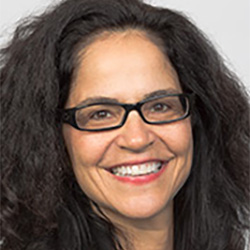
Elizabeth Iglesias
Professor of Law, University of Miami School of Law
Professor Iglesias holds a BA (magna cum laude) from the University of Michigan and a JD (with honors) from Yale Law School. She is the co-founder of Latina and Latino Critical Theory, Inc. (LatCrit, Inc.) which she incorporated in 1998 and co-directed until 2003. In 1997, she designed the Project for Legal Economic, Development, Justice and Equality (PLEDJE) an innovative clinical program to promote micro-business development, immigrant rights & the use of NAFTA labor and environmental side accords through workshops, community based study circles and outreach to underprivileged high school students.
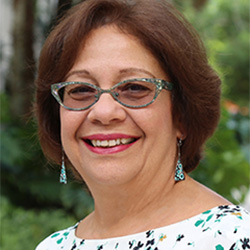
Lillian Manzor
Modern Languages and Literatures, University of Miami
Lillian Manzor is an associate professor in the Modern Languages and Literatures department at the University of Miami. Manzor specializes in 20th and 21st century Latin American, Hemispheric Caribbean and Latine Theater and Performance Studies. Before coming to UM, she taught at UC-Irvine Comparative Literature (1988-1995). She is co-editor of the book series Sualos, published jointly by Havana’s Editorial Alarcos and Miami’s CTDA Press. She is currently finishing a book manuscript titled “Marginality Beyond Return: US-Cuban Performances in the 1980s and 1990s.” Dr. Manzor has been an innovator in using technology in her teaching and research. She is the Founding Director of the Cuban Theater Digital Archive, a digital publication that serves as a space for communication between politically divided communities. She has also published a bilingual online exhibit Cuban Theater in Miami: 1960-1980, and the multimodal book, El Ciervo Encantado: An Altar in the Mangrove. Her ongoing research project, Sites that Speak, uses GIS and the Scalar platform to create digital cultural map of performing arts spaces in Spanish in Miami. Her research has been funded by grants from the Mellon Foundation, the National Endowment for the Humanities, and Cuban National Council for the Performing Arts. As a community engaged scholar, she serves as dramaturg and cultural advisor for theater companies in the United States and Cuba, and she has been actively involved in developing US-Cuba cultural dialogues through theater.
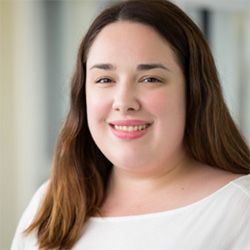
Amanda Moreno
Cuban Heritage Collection, University of Miami Libraries
Amanda Moreno is a graduate of the MA/MSLIS dual-degree program in Latin American and Caribbean Studies and Library and Information Science from New York University (NYU) and Long Island University. During her graduate study, she was awarded an NYU MacCracken Fellowship, American Library Association Spectrum scholarship and a fellowship from the Association of Research Libraries’ Initiative to Recruit a Diverse Workforce; she also participated in the Smithsonian’s Latino Museum Studies Program. In 2020, she was awarded a Rare Book School-Andrew W. Mellon Fellowship for Diversity, Inclusion & Cultural Heritage. As the Archivist for the Cuban Heritage Collection (CHC), Amanda collects, manages and processes historical materials related to Cuba and its diaspora, while also providing reference and instruction services for students, faculty, and independent researchers. She has previously worked as an Archives Assistant at CHC and a Collection Development Assistant for Latin American materials at NYU’s Bobst Library.
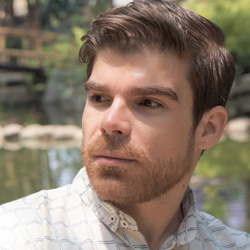
Pedro Enrique Moya Díaz
Doctorado en Humanidades, Universidad Autónoma Metropolitana- Xochimilco
Realizador audiovisual y productor transmedia. Candidato a doctor en Humanidades en la Universidad Autónoma Metropolitana- Xochimilco —en la línea de Teoría y Análisis Cinematográfico—, donde desarrolla una investigación sobre las relaciones entre la autoría cinematográfica y las plataformas de video on demand. Cursó estudios de Nuevos Medios en la Escuela Internacional de Cine y Televisión de San Antonio de los Baños, es Maestro en Estudios Latinoamericanos (campo de Arte y Cultura) por la UNAM, licenciado en Periodismo por la Universidad de La Habana y especialista en Dirección de Cine Documental por el Instituto Cubano del Arte e Industria Cinematográficos. Ha trabajado como director y guionista de televisión; como director, fotógrafo y editor en proyectos audiovisuales y digitales y como coordinador de diversos programas de formación audiovisual. Actualmente coordina el Laboratorio de Medios y Tecnologías El Rule y es colaborador del Centro Multimedia del CENART, donde organiza el programa de Cine y Narrativas Transmedia. Profesor en SAE Institute-México y la Universidad de Tijuana.
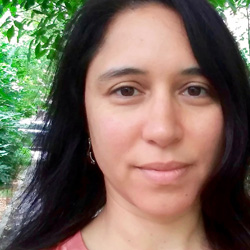
Irene Rozsa
Center for Latin American Studies, Tulane University
Irene Rozsa is a SSHRC Postdoctoral Fellow at Tulane University’s Center for Latin American Studies. She received her Ph.D. in Film and Moving Image Studies at Concordia University, where she was awarded the Governor General of Canada Academic Gold Medal for outstanding dissertation. Her work has appeared or is forthcoming in Canadian Journal of Film Studies, Studies in Spanish and Latin American Cinemas, Vivomatografías, Journal of Italian Cinema and Media Studies, Modernism/Modernity Print Plus, and in the edited anthology Cosmopolitan Film Cultures in Latin America, 1896-1960. Dr. Rozsa’s current book project, based on her dissertation “On the Edge of the Screen: Film Culture and Practices of Noncommercial Cinema in Cuba (1948-1966),” focuses on film education, cine-clubs, and amateur filmmaking in Cuba during the transition from the pre-revolutionary to the early post-revolutionary period. Funded by Canada’s Social Sciences and Humanities Research Council, her postdoctoral research examines the impact of Catholic film organizations in Latin America, expanding her interest in non-theatrical film distribution and exhibition to investigate parallel circulation channels and reception contexts for films, including digital media spaces.
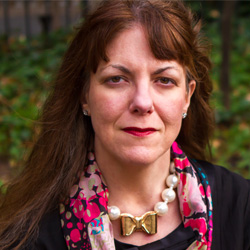
Caridad Svich
Playwright and Independent Scholar
Caridad Svich is a playwright, translator, lyricist, editor, educator and artivist. She has received an OBIE for Lifetime Achievement, the American Theatre Critics Association Primus Prize, Ellen Stewart Award for Career Achievement in Professional Theatre from ATHE, and twice received the National Latino Playwriting Award. She has held fellowships at Harvard/Radcliffe and at Royal Central School of Speech and Drama, among others. Key plays in her vast body of work include 12 OPHELIAS, IPHIGENIA CRASH LAND FALLS…, RED BIKE, and THE HOUSE OF THE SPIRITS (based on Isabel Allende’s novel). She has edited several books on theatre. Her most recent book is on the musical HEDWIG AND THE ANGRY INCH (Routledge). Forthcoming from Methuen Drama is her book TOWARD A FUTURE THEATRE. She is an Editor at Contemporary Theatre Review (Routledge, UK) and on the advisory board of Global Performance Studies. She is founder of NoPassport Press and her archives are held at the Cuban Heritage Collection at the University of Miami.

Martin Tsang
Cuban Heritage Collection, University of Miami Libraries
Dr. Martin A. Tsang is the Cuban Heritage Collection Librarian and Curator of Latin American Collections. In 2015, Martin joined the University of Miami Libraries as the Council on Library and Information Resources Postdoctoral Fellow. In his current role, he develops print and digital collections, teaches, curates exhibitions, provides consultative and instructional research support services and assists the Libraries in designing a new model for transformative library engagement with our research and teaching communities. Martin is an anthropologist and received his Ph.D. from Florida International University. He has previously held fellowships at the Cuban Heritage Collection, and his doctoral dissertation focuses on the Chinese in Cuba, specifically how the legacy of Chinese indentured workers have influenced Cuban culture and Afro-Cuban religion. His active research and publishing interests include contemporary issues of race, health, and religion in the Caribbean and Latin America.